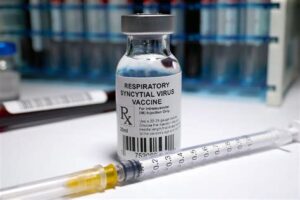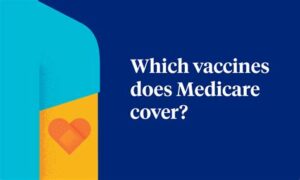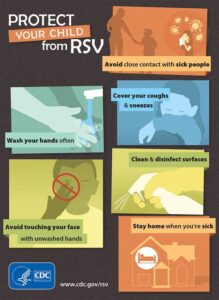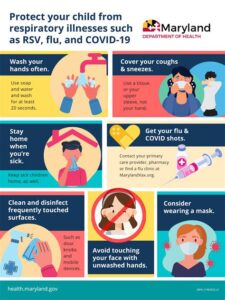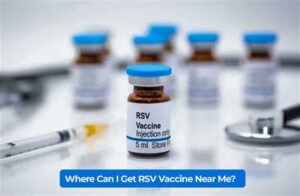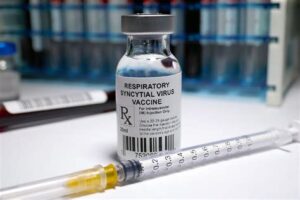Explore COVID-19’s impact on the RSV vaccine’s development, effectiveness, and future prospects in this comprehensive overview. Stay informed about respiratory virus advancements.The COVID-19 pandemic has reshaped our understanding of infectious diseases and highlighted the importance of vaccines in safeguarding public health. As we navigate the aftermath of this global crisis, attention is turning toward another respiratory virus: respiratory syncytial virus (RSV). With its potential to cause severe illness, particularly in infants and the elderly, the development of an effective RSV vaccine has gained renewed urgency. This blog post will explore the complexities of RSV and its vaccine, delving into the factors that have influenced its development, the effectiveness of the vaccine in the wake of the COVID-19 pandemic, and what the future holds for vaccine advancements. Join us as we uncover the critical intersection of these two viral threats and the promise of a healthier tomorrow.
Understanding COVID-19
COVID-19, caused by the novel coronavirus SARS-CoV-2, emerged as a global pandemic in late 2019. It led to widespread illness and impacted daily life around the world. The disease primarily spreads through respiratory droplets when an infected person coughs, sneezes, or talks.
Symptoms of COVID-19 range from mild to severe and can include fever, cough, shortness of breath, fatigue, and loss of taste or smell. While some individuals experience only mild symptoms, others, particularly those with underlying health conditions, may require hospitalization.
The development of vaccines against COVID-19 was a pivotal moment in public health, leading to rapid immunization efforts globally. Vaccines such as Pfizer-BioNTech, Moderna, and Johnson & Johnson have played crucial roles in mitigating the spread of the virus, reducing case severity, and significantly lowering hospitalizations and deaths.
As we transition towards a post-pandemic world, understanding the impact of COVID-19 is essential for addressing lingering health challenges such as those posed by respiratory viruses like RSV (Respiratory Syncytial Virus), which has drawn increased attention in recent years.
Introduction to RSV vaccine
Respiratory Syncytial Virus (RSV) is a significant cause of respiratory infections, especially in infants and young children. Given its prevalence and potential severity, health organizations have prioritized the development of an RSV vaccine. This has become even more pressing in the wake of the COVID-19 pandemic, which has stressed healthcare systems and shifted focus to respiratory illnesses.
The primary goal of an RSV vaccine is to prevent infections that can lead to serious complications such as pneumonia and bronchiolitis in vulnerable populations. Several clinical trials have been conducted, exploring both monovalent and multivalent vaccine formulations to enhance efficacy and broaden protection against various strains of the virus.
After the disruptions caused by the COVID-19 pandemic, researchers have adopted innovative approaches that leverage advancements in vaccine technology, such as mRNA platforms. These technologies have proven effective in the rapid development of COVID-19 vaccines and are now being adapted for RSV vaccine candidates.
As we move forward, the anticipation surrounding the RSV vaccine continues to grow. The hope is that a successful vaccine can significantly reduce hospitalizations and mortality associated with RSV, ultimately providing
Developing the RSV vaccine
Respiratory Syncytial Virus (RSV) is a common virus that leads to respiratory infections, particularly in young children and the elderly. The urgency for developing an RSV vaccine has intensified due to its significant health impacts and the recent experience with the COVID-19 pandemic. The process of creating an effective vaccine against RSV involves multiple stages, including research, clinical trials, and comprehensive evaluation.
The development of the RSV vaccine has seen various approaches, such as live-attenuated viruses, vector-based vaccines, and protein subunit vaccines. Each of these platforms aims to stimulate the immune system in different ways to generate a strong and lasting response against RSV. The use of modern techniques including mRNA technology, which was successfully applied during the COVID-19 vaccine rollout, has also begun to play a pivotal role in RSV vaccine development.
Currently, several candidates are in different phases of clinical trials, showcasing promising results in safety and immunogenicity. Health authorities are closely monitoring these developments as they could lead to the approval of the first RSV vaccine in the near future. The potential introduction of an effective RSV vaccine would provide a critical tool in preventing severe infections and hospitalizations, especially following the
Effectiveness of RSV vaccine post-COVID-19
As we navigate the aftermath of the COVID-19 pandemic, the effectiveness of the RSV vaccine is garnering significant attention. Respiratory syncytial virus (RSV) is a common virus that can lead to serious respiratory illness, particularly in infants, elderly individuals, and those with underlying health conditions. Understanding how the RSV vaccine performs in the post-COVID era is crucial for public health strategies aimed at preventing respiratory diseases.
Preliminary data suggests that the RSV vaccine shows promising effectiveness, even as the world continues to deal with the impacts of COVID-19. Researchers are comparing the immune responses elicited by the RSV vaccine in individuals who have previously been infected with SARS-CoV-2, the virus that causes COVID-19. These findings indicate that immunity from COVID-19 may influence the body’s response to the RSV vaccine.
Public health officials are closely monitoring these developments to ensure that the RSV vaccine can effectively reduce the burden of respiratory illnesses. The integration of the RSV vaccine into vaccination programs may help in safeguarding vulnerable populations against multiple viral infections, thereby optimizing health outcomes in a world still adapting to the challenges posed by COVID-19. With continuous research and monitoring, the RSV vaccine may p
Future prospects of RSV vaccine
The development of an RSV vaccine is a promising advancement in the field of immunization, particularly in light of the recent challenges posed by the COVID-19 pandemic. The increased understanding of respiratory viruses through the pandemic has illuminated the urgency and potential for effective RSV vaccines.
Looking ahead, there are several key factors influencing the future prospects of the RSV vaccine. First, the collaboration between pharmaceutical companies and health organizations is more essential than ever. A united effort can expedite research and make vaccine distribution more efficient. Additionally, the road paved by the COVID-19 vaccine rollout provides a comprehensive framework for vaccine delivery and public health messaging.
Furthermore, with the rise of innovative vaccine technologies, such as mRNA and viral vector platforms used during the COVID-19 vaccination efforts, similar approaches may enhance the effectiveness and safety of RSV vaccines. As we anticipate the challenges of respiratory viral infections in a post-COVID world, investing in research for an RSV vaccine could be pivotal for pediatric and geriatric populations who are most at risk.
Frequently Asked Questions
What is the primary purpose of the RSV vaccine?
The primary purpose of the RSV vaccine is to protect against respiratory syncytial virus (RSV), which can cause severe respiratory infections, particularly in young children and the elderly.
How does the RSV vaccine interact with COVID-19 vaccines?
The RSV vaccine is designed to target a different virus than COVID-19, so receiving both vaccines is generally considered safe and they can help protect against their respective infections.
Who should get the RSV vaccine after COVID-19 vaccination?
High-risk groups such as infants, young children, and older adults are recommended to get the RSV vaccine, especially after completing their COVID-19 vaccinations.
Are there any side effects associated with the RSV vaccine?
Like any vaccine, the RSV vaccine may cause mild side effects such as soreness at the injection site, fever, or fatigue, but serious side effects are rare.
When will the RSV vaccine be widely available to the public?
The availability of the RSV vaccine to the public may vary by region, but manufacturers are working to ensure widespread access, with potential rollouts expected in the coming years.
Can the RSV vaccine prevent COVID-19?
No, the RSV vaccine does not provide any protection against COVID-19, as it specifically targets the RSV virus.
What are the benefits of getting the RSV vaccine after COVID-19 vaccination?
Getting the RSV vaccine after COVID-19 vaccination helps bolster overall respiratory health, particularly for those at increased risk, and can help prevent additional respiratory infections during the cold and flu season.
